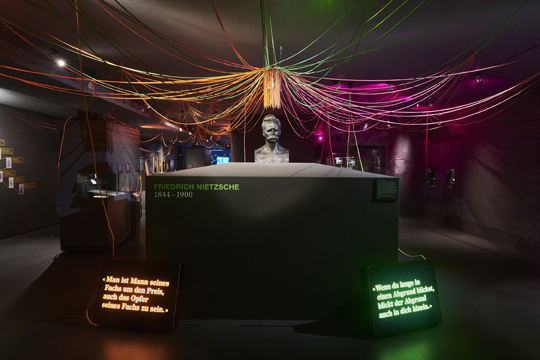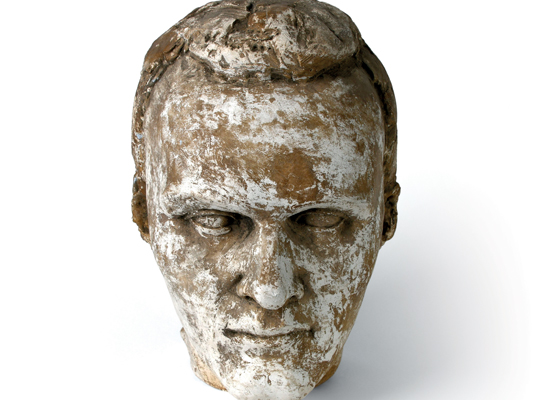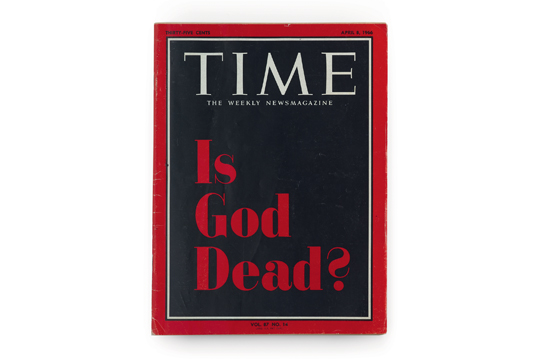Sensing the World through Nietzsche
Freiburg, Feb 19, 2020
The qualified philologist and posthumously famous philosopher Friedrich Nietzsche, who went mad aged only 44, would have had two reasons to celebrate this past year: firstly the 175th anniversary of his birth, secondly the 150th anniversary of his appointment to the University of Basel, Switzerland. There is still great interest in Friedrich Nietzsche worldwide. So the University of Freiburg has decided to establish a Nietzsche Research Center (NFZ). The center is the first in the German-speaking region and combines knowledge from the fields of philosophy, philology, theology, law and medicine.
 Interest in the qualified philologist and posthumously famous philosopher Friedrich Nietzsche remains high all around the world even 175 years after his birth. Photo: Basel Historical Museum
Interest in the qualified philologist and posthumously famous philosopher Friedrich Nietzsche remains high all around the world even 175 years after his birth. Photo: Basel Historical Museum
“We want to use Nietzsche as a kind of sounding rod in order to research the world of the 19th and 20th centuries,” says Prof. Dr. Andreas Urs Sommer. The Freiburg philosopher heads the NFZ as designated managing director. The goal of the institution is to go beyond the well-trodden paths in casting light on the life, work and thinking of Nietzsche. To this end, five faculties at the University of Freiburg are delegating academics to the Research Center. It is also an advantage that the NFZ is included in the Upper Rhine Association, Eucor – The European Campus. The Heidelberg Academy of Sciences and Humanities also has institutional ties with the NFZ.
Investigating madness
One puzzle that it has not been possible to answer since the death of the philosopher is the disease that Nietzsche was really suffering from. “This has been a recurring question, and is in fact a mystery,” Sommer declares. It has been debated since Nietzsche’s breakdown in 1889. “In the journal of the clinic where he was treated it says that the patient stated that he had had a ‘relevant’, that is syphilitic, infection.” However the syphilis theory was vehemently disputed by his sister Elisabeth Förster-Nietzsche. “To her it was clear that her brother could never have been infected because he never entered into sexual relationships with women, not to mention men,” explains the Freiburg philosopher. So far, academia has had to be satisfied with analysis of the symptoms. But now the NFZ is contemplating exhuming and studying the mortal remains of Nietzsche in cooperation with the Faculty of Medicine, in order to put an end to all the speculation about his suffering.
 The bust shows the head of the young philosopher – but without his trademark mustache he is barely recognizable. Photo: Basel Historical Museum
The bust shows the head of the young philosopher – but without his trademark mustache he is barely recognizable. Photo: Basel Historical Museum
Another project is a research cooperation with the Japanese universities of Tokyo and Kyoto. “Nietzsche’s writings received a critical reception in Japan very early on. The first translations were already made in the 1890s, including works that received little attention at first in Germany,” explains Sommer. At the same time, research into the early days of Nietzsche’s reception in Japan is still limited. In addition, there are plans for a large-scale research initiative into the development of Nietzsche’s influence in Germany and France.
Focusing on his sister
Elisabeth, the philosopher’s sister, also plays a key part. As the executor of his estate, she played a large part in shaping his profile in the first half of the 20th Century. “Her willingness to be of service to those in power was embarrassing, this was the case during the empire and continued into Nazism.” Such ingratiation with whoever was ruling would probably have irritated her brother a lot, Sommer believes.
 “Is God Dead?” Time Magazine discussed one of Friedrich Nietzsche’s most famous statements. Photo: Basel Historical Museum
“Is God Dead?” Time Magazine discussed one of Friedrich Nietzsche’s most famous statements. Photo: Basel Historical Museum
At present the academic is trying to restore Nietzsche to the context of his times – a project which Elisabeth Förster-Nietzsche would once also have viewed skeptically: “She wanted her brother to continue to be seen as a great original genius that no one could hold a candle to,” says Sommer. Yet this claim cannot be sustained these days: during his lifetime, Nietzsche was not only surrounded by numerous friends, acquaintances and relatives, but he also lived in his own cosmos of reading matter. “Nevertheless, as a thinker he felt very alone, because his extremism was poorly received. The sense of not being understood contributed to the myth of isolation.”
Greater range of courses
Together with an international commission, the university will review the results of the NFZ projects and cooperations every three years. In teaching too, the center wants to provide a greater range of courses on the 19th Century in the form of lectures, seminars and workshops. An exhibition at the Basel Historical Museum offers insights into the life and world of ideas of Friedrich Nietzsche until 20th March 2020. Nietzsche researchers from Freiburg contributed significantly to the development of the show and to the accompanying publication.
Judith Burggrabe

